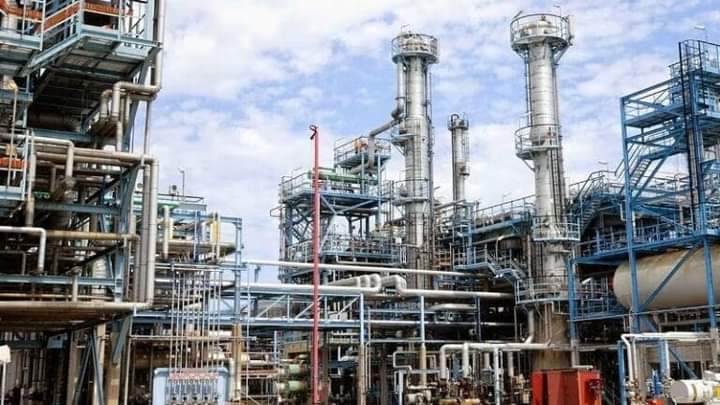Barely three days of oil production resumption Portharcourt refinery shuts down operations
In a shocking turn of events, the Port Harcourt Refining Company (PHRC) has inexplicably ceased crude oil processing, merely days after the Nigerian National Petroleum Company (NNPC) Ltd proudly declared the re-streaming of the refinery.
A diligent reporter who visited the refinery on Friday observed that the facility was eerily inactive, with no discernible signs of operation.
According to the reporter, several workers at the refinery confided that the facility was undergoing a calibration process, which might persist till net week. This explanation, however, raises more questions than answers, particularly in light of the NNPC’s recent announcement.
The NNPC had boldly claimed that trucks had commenced loading petroleum products, including Premium Motor Spirit (PMS) or petrol, Automotive Gas Oil (AGO) or diesel, and Household Kerosene (HHK) or kerosene, from the refinery.
Nevertheless, a Punch Newspaper report revealed a startling contradiction, citing an anonymous refinery official who disclosed that the loaded trucks on Tuesday actually contained “dead stock.”
The official, who chose to remain anonymous, elaborated, “Before the refinery was shut down between 2015/2016, we had dead stock left in the tank, including some Premium Motor Spirit (petrol) DPK (kerosene), and Automated Gas Oil (diesel).
“So, these products were in large quantities in stores in those tanks. During the rehabilitation of the Port Harcourt Refinery, Old Area 5, those products were evacuated from the tanks for storage.”
He noted that the large quantity of refined petrol was “off-spec,” requiring separation from water to obtain the main product in preferred colours.
“But for DPK, it is in large quantity but they have not pushed it from the tank where it was kept after refined ready for commercial purposes.
“So, the product that was loaded was dead stock, that is the old product that was in the system. So, after these dead stocks, they will have to clean the tank, remove all the debris before pumping the new project into that tank, and redye it.”
However, the Chief Corporate Communications Officer of NNPCL, Femi Soneye, had on Tuesday claimed that the refinery was operating at 60 percent capacity, processing a substantial 60,000 barrels per day.
Soneye also later rubbished the claims by an Alesa community leader, Timothy Mgbere, that the Port Harcourt refinery was not producing fuel.
He said, “The old and new Port Harcourt refineries have since been integrated with one single terminal for product load-out. They share common utilities like power and storage tanks. This means that storage tanks and loading gantry which he claimed belongs to the new Port-Harcourt Refinery can also receive products from the Old Port Harcourt Refinery.”
He called on the public to disregard claims borne out of “sheer mischief and blatant display of ignorance.”




